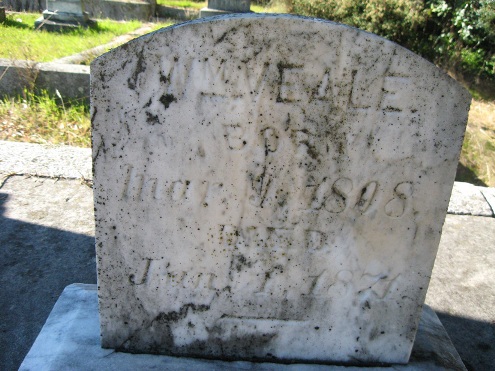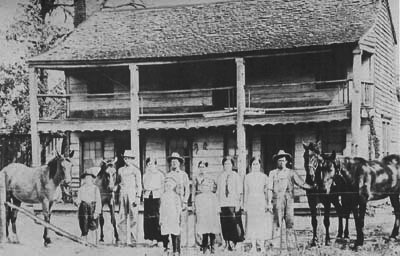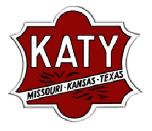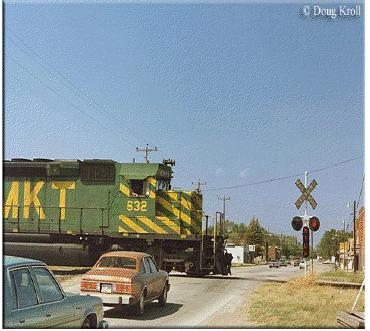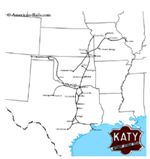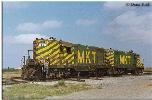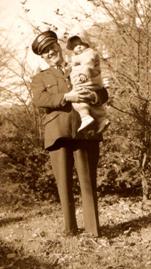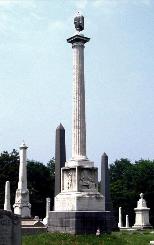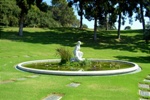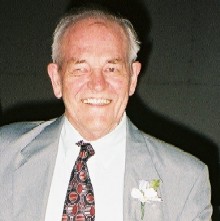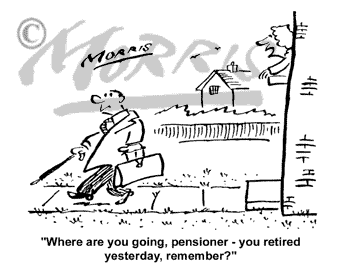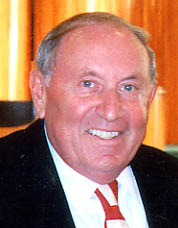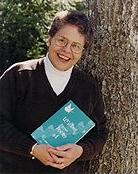By Mark Crocker
Full Moon-Part 2
Rabbo hopped of to the library for his morning lesson. But once in the library he could hear giggling, laughing, and banging sounds coming from above him.
He blocked out the noises coming from above and started to study hard as Isis had told him that he would be taking a huge test at the end of the six days of class. Isis had told him that it would be a very important test that would mean either he had learned a lot or a little.
When his class was over, Rabbo came out of the library and was surprised to see Athena wearing her robe sitting at the kitchen table eating a sandwich. There was no sign of Bastet anywhere.
Merwyn walked out of the living room into the kitchen. “I guess Bastet is here. How can anyone sleep with you two around?”
“Dad, you did not ask why she is here or how she got here,” said Athena trying not to giggle as she spoke.
“Well?” said Merwyn.
“She teleported here, and she needs your help and my help with something she wants.” For the next hour Athena explained what Bastet needed and what she was willing to do in return for getting what she wanted. Rabbo wondered why Bastet wanted a child and why Merwyn was unwilling to help her.
While they were talking Bastet came down the stairs wearing one of Athena’s long togas and sat at the table and listened.
It was then that Rabbo noticed that she looked like a more tanned and fuller Isis.
Rabbo hopped over to Bastet and looked up at her from the floor. “You look like Isis.” Bastet looked down at Rabbo with her mouth wide open. “Oh, my! Your rabbit talks!”
“Yes, I talk. Why should I not talk? You talk, so I talk to you,” said Rabbo looking up at Bastet.
“Oh, he’s so cute!” said Bastet to Athena. Rabbo hopped around to his chair and jumped up on his chair then onto the table and sat down in front of Bastet. He turned and looked at Merwyn and Athena and said, “Sorry.” He then turned back to Bastet. “I have eyes, ears and a brain. I am not some cute rabbit that has no clue, so please talk to me as you would talk to any human. I may seem like a rabbit, but my IQ is far higher than the original humans of this planet. Forgive me if I sound upset. I am not. I just would like you to understand that I think, talk and have a brain. Don’t let my looks fool you.”
“I am very sorry. I did not mean to insult you,” said Bastet bowing her head towards Rabbo. Merwyn slid his hand over his face to hide his smile. “Very well said my dear friend” said Merwyn privately to Rabbo.
“I still think he’s so cute for a rabbit,” said Bastet on the general telepathic mode to Athena and Merwyn totally unaware that Rabbo could also hear her.
“My name is Rabbo,” said Rabbo in the same telepathic mode. Bastet brought her hand to her mouth as if to say “Oh!”
“I better explain Rabbo to you, darling” said Athena. Athena turned to Bastet and started to explain what she had done to Rabbo and how he came into being.
Merwyn turned and looked at Rabbo “Come on Rabbo, let’s go outside and check on the cattle and see what work can be done in the garden as there will be no peace in the house while Bastet is here”.
As they walked towards the meadow where the cattle had been staked out Merwyn explained that Bastet, while being the younger sister of Isis, was very smart if somewhat clumsy socially. She was in fact one of the smartest genetic engineers on Sirius, and more than likely was very surprised that Athena had done what she did to Rabbo and Cat. What properly surprised her more was that Athena had done such a wonderful job on them both. Something that Merwyn sounded very proud of. But what bothered Merwyn was the fact that Bastet wanted a child.
The cattle were gazing towards the house and almost at the end of the ropes that were being used to stop them from wandering off into the woods.
Merwyn paced out an area that seemed very large to Rabbo. The area would be fenced off using wood that Merwyn would have to cut from the forest.
They then walked down to the garden where fresh dirt had been dug in long lines from one side of the garden to the other.
That area had previously been left empty, and Merwyn and Rabbo had been planning on tilling the soil to get it ready for planting of parsnips, carrots, cabbage, onions, garlic and beets that would be used to get them though the winter.
Merwyn looked around wondering who or what had invaded the garden and had been digging and tilling the soil for them.
It was Rabbo that spotted the paw prints that lead away from the garden towards the low mound that the wild rabbits lived in.
“You know this area is twice the size of what we need to plant for our winter vegetables,” said Merwyn to Rabbo.
“I think that’s what they planned,” said Rabbo looking up at Merwyn.
“Who planned?”
“I think they helped so they can have food, too, though the winter,” mused Rabbo.
“Who are you talking about?” asked Merwyn. Rabbo stood up on his hind legs, turned toward the low mound, and saw a row of rabbits' ears all turned towards him and Merwyn.
“My brothers and sisters,” said Rabbo almost laughing.
“Well, if you can, ask them to dig an area about the same size. I will plant as much as I can, so they can eat very well all winter long. But as it is, we can eat ok if we spilt half with them. Does that sound fair?” asked Merwyn. Rabbo and Merwyn set to work in the garden planting rows and rows of carrots, parsnips, cabbage, onions, garlic and beets. They then set up irrigation pipes so that the garden could be watered without any problems.
Then Rabbo hopped out an area that was the same size as the area that the wild rabbits had dug, and started to dig hoping that his brothers and sisters would understand what he wanted.
As he marked out and dug the area, he thought to himself how useful it would be to be able to talk to them so that he could find out what they wanted and what he could do to help them and how they could tell him things that they saw and heard that would help to protect not just them but Merwyn and Athena too.
Rabbo and Merwyn headed back towards the house as the sun was starting to set behind the forest to the west.
They walked into the kitchen and could smell food being cooked even before they were both fully inside.
Athena and Bastet were sitting at the kitchen table talking about genetic engineering and what they could do to make an embryo for Bastet.
“We could do me too at the same time” said Athena. “I so want a baby”
“WHAT!” said Merwyn.
“Dad, my mind is made up. I want and will have a baby.” And with that Athena got up and left the kitchen.
Rabbo looked up at Merwyn “It seems that would make her very happy. But there are no males here other than you to help her with that need”.
“That’s part of the reason I don’t want her in the village. She has been running on her hormones since she met the pregnant young priestess from the village. Beside from what I understand the genes of the people of this planet don’t match ours so the chances of Athena getting pregnant from the males here are low. I do know that they don’t interest her anyway,” Merwyn told Rabbo on the private telepathic mode. Athena did not join Merwyn, Rabbo, Cat and Bastet for dinner as she had gone to her bedroom and then to the library and had locked the door.
Rabbo was sitting on the rug by the fireplace with Cat and his mother. Merwyn was outside with Bastet in an astral trance.
Rabbo did not notice Athena float softly and quietly out of the library and come up next to him.
The first thing he knew was when he floated up off the rug and felt her arms enfold him in Athena’s warmth.
“I think that played out very well. Dad will help to get Bastet pregnant by giving her the genes she needs. I just wish that it was the normal method. But still she is not into men so it will have to be gene manipulation and Bastet taught me how to do that. And as for me…” Athena left the rest of what she was going to say unsaid on the private telepathic mode. The full moon was bright over the trees and the house as Athena and Rabbo came outside to see if Merwyn was mentally back from his astral travel trip and to see what Bastet was doing.
Bastet was in her lion form stretched out in front of Merwyn who was sitting very still with his legs crossed and his eyes closed.
It was clear to even Rabbo that Merwyn was light years away and that it would be some time before he came back.
Rabbo looked at Bastet in her lion form and saw that the toga she had been wearing in her normal human form was neatly folded and laying on the chair that Athena liked to sit in when the sun was warm and bright.
Bastet turned and looked up at Athena. She slowly got up and rubbed her lion head and body against Athena before she walked into the house.
Athena turned and started to walk to the house following Bastet.
As Rabbo sat watching Athena and Bastet heading into the house he was surprised to see the slide across the grass and follow them into the house.
Rabbo turned back and looked at Merwyn he was surprised to see his brothers and sisters very close to Merwyn. What surprised him even more was the fact that the other wild rabbits were just as close.
He saw his two female friends almost at Merwyn's feet eating grass and looking over at him.
His first female friend hopped over and Rabbo noticed that her stomach was fat and it moved a little as if something was inside.
Then Rabbo remembered the words that Athena had spoken one time recently, “She is checking out the mother of her grand children.”
Suddenly Rabbo laughed to himself and understood fully why he liked her and the other female.
He hopped over to his new female friend and sniffed her and she did smell very interesting. He was about to use his nose to nudge her off somewhere so that they could be alone when he heard chattering behind him.
Rabbo turned and one of his sisters was right behind him. And next to her were four small young rabbits.
His sister sat back on her hind legs and made the grass sound to the young rabbit and leaned down and pointed her nose at the grass.
Rabbo forgot about his interest in the other female rabbit and listened to his sister, and followed her around as she showed the young rabbits lots of different things and made different sounds for each different item.
After a long while they ended up at the burrows. As his sister sat in front of the burrows entrance she made a sound and used her nose to point out the entrance to each burrow.
But when she came to the big burrow she made a different sound and pointed her nose at Rabbo.
Rabbo sat back on his legs and thought about all the sounds and repeated each one in his head.
He knew the sounds for grass, stone, path, water, dig, come, go, here, there, sky, follow, and many more. He knew that now he might be able to learn the rabbits' language and therefore talk to his brothers and sisters.
Rabbo watched as his sister entered one of the normal size borrows and she looked at the young rabbits and made the "follow" sound to them.
Rabbo hopped back up toward the garden and met two of his brothers who were sniffing the area that Rabbo and Merwyn had planted that afternoon.
He looked at them and hopped over to the area that he had marked out and made the dig sound.
His brother looked at each other and chattered very fast to each other then turned back and nodded at him.
Rabbo then acted like he was harvesting carrots and other vegetables and then acted like her was giving half to his brothers.
His brothers chatted to each other some more and they acted like they gave half back to Rabbo of the pretend pile that he had given them.
Rabbo nodded to them and knew that he had just negotiated a deal by which the rabbits would dig another large area, and they would take a quarter of the vegetables.
His brothers looked up at the full moon that was now high over head and nodded to him and started to hop toward the low mound that was their home.
Rabbo hopped to Merwyn to see if he was back.
In the moonlight Rabbo could she that Merwyn was still sitting cross legged, but one hand was rubbing his chin as if he was deep in thought.
“So you negotiated a deal with your siblings. How much are they going to take? Half or three quarters?” asked Merwyn.
“Just a quarter after they have dug the new area,” replied Rabbo.
“So that would have been half of the old area they dug for us?”
“Yes, that right. I think we have a good deal,” said Rabbo.
“Offer them a third tomorrow and not a quarter.” Merwyn and Rabbo walked up to the house and quietly entered the kitchen.
So Rabbo hopped over to his elevator and rode upstairs and then hopped down the hallway towards Athena’s bedroom.
When he entered the bedroom he saw Athena sitting at her dresser brushing her hair and Bastet asleep in Athena’s bed.
The window was wide open and a gentle breeze was blowing though bringing the night smells into the room.
“Dad is right. With Bastet here I won’t get anything done. And tomorrow Bastet and I need to get to work in the lab with our gene splicing and mixing and matching so that we can make two embryos to go in her,” said Athena on the private telepathic mode to Rabbo.
“I thought you wanted a baby, too?” asked Rabbo on the same mode. Athena just smiled, got up and slipped into bed next to the sleeping Bastet who turned and snuggled close into Athena.
Rabbo hopped up onto the window sill and curled up to sleep.
The sunlight was pouring in though the window and the warmth of the sun on his fur woke Rabbo up.
Rabbo looked over at Athena’s bed and saw that it was made and empty. So he slipped off the window sill and went downstairs to have his breakfast and get ready for class.
Merwyn was sitting at the kitchen table eating his breakfast and drinking a glass of fresh milk.
“Athena and Bastet are already in the lab so we won’t see them today or tomorrow. So it’s just you and I today, Rabbo,” said Merwyn. Rabbo ate his breakfast and drank the fresh milk wondering why the milk always tasted best when it was still warm from the cows.
Once Rabbo had finished his breakfast he hopped into the library and stated his morning class.
The class was very hard involving algebra, trigonometry and calculus. It was so hard in fact that Rabbo had to keep going back over things and checking and rechecking his answers. In fact it took him so long that the sun was at the noon day mark when he had finally done the last set of figures.
Rabbo’s mind was so tired from all the hard mental work that he was having a hard time keeping his ears up straight. Rabbo also noticed that his eyes were hurting too and a nap was very much in order.
Merwyn looked at Rabbo and shook his head but did not say a word about how Rabbo looked or that Rabbo could not keep his ears up.
Rabbo knew that Merwyn had wanted to have him negotiate with his brothers and sisters about giving them a third of the harvest from the area that they would dig. But he felt too beat and tired to even hop to the garden let alone down to the warren. As for talking in rabbit, his mind was still to busy with figures and formulas to even think in rabbit. All he could think about was what Isis had been teaching him.
Rabbo had eaten only about half of his lunch when he felt his head start to nod from being tired. So he hopped down from the table and over to the rug.
He curled up and closed his eyes and fell straight into a deep sleep.
When he awoke an hour later, Cat was sitting next to him cleaning his ears. “Think and learn too much. Silly rabbit. Fill head with too much,” said Cat.
Rabbo waited until Cat had finished cleaning him before he sat up and looked around and noticed that his mother was sitting behind Cat cleaning her paws.
Rabbo returned to the library and sat down at the computer and waited for his next class to begin.
The class picked up right where his morning class had left off but with a difference that Rabbo picked up on straight away.
The class was aimed more at going over the morning lessons rather than new things that would have taxed Rabbo’s brain even more than it had been in the morning class.
At the end of the class, Rabbo was informed that there would be no exam and that Rabbo could relax for 30 days as it was time for him to rest his mind and body so that once classes restarted 31 days later he would be fresh and ready to start learn more things and that the classes would be different as he would have to go outside to learn some of the things and that he would have to do some of his classes at night when it was dark.
Rabbo was very happy to know that he would have 30 days free of classes as he was starting to think that all he did was learn and learn and that while it was great to be learning there was only so much that his brain could hold at one time.
As it was just Rabbo and Merwyn to eat dinner that night, Merwyn set up dinner outside on the lawn.
A wine skin hung over the back of Merwyn's chair while a small low table had been placed in front of the two low chairs that Merwyn had set out so that he and Rabbo could enjoy the early evening.
Dinner was steak with salad, squash and pasta for Merwyn, and fresh greens with carrots peas and beans for Rabbo.
After dinner Merwyn looked Rabbo up and down to see if he was fully recovered from his mathematical ordeal that computer Isis had put him though that day.
Merwyn shook his head. “Pity you are not fully recovered as I was planning to start to see if you had the mental abilities that Athena has as you have some of her brain cells in that head of yours. I know you astral travel, but I have no idea how strong you are or what your other abilities are. I assume that they are the same has Athena’s but again I am not sure. I guess tomorrow or the day after we should start to see what you have. How do you feel about that?”
Rabbo thought and then looked at Merwyn thinking hard.
Rabbo snickered to himself as it would be funny if he was thinking so hard that smoke started to come out of his ears. In fact it was so funny that Rabbo pictured himself with smoke coming out of his ears.
Suddenly there was smoke and then flames, followed very quickly by burning pain that hurt so much that Rabbo squealed loudly.
Rabbo felt his ears cool and the pain stopped and the smell of burning fur and flesh drifted away very quickly. A gentle breeze wafted around his ears soothing them and making them feel even better.
“Ok, so you have creativity. That’s two abilities I know you have. But let's wait until tomorrow at the soonest before you do any more party tricks as I don’t want you hurting yourself tonight or tomorrow as the lab is not free,” Merwyn said in a thoughtful tone. “Here, have a refill on your wine.” Rabbo held his glass up as Merwyn refilled his glass.
The glass was Rabbo’s standard size glass that was about one third the size of Merwyn's glass.
Thinking deeply and trying hard not to start his ears smoking or catching fire again Rabbo wondered how he was going to find out why Merwyn had a problem with Athena getting pregnant, and why Merwyn was unwilling to help Bastet get pregnant. After all, Rabbo had got his female rabbit friend pregnant and more than likely his new female rabbit friend.
“Rabbo, you are deep in thought. What are you thinking about?” asked Merwyn.
“I am confused. Athena wants a baby and you got upset. Bastet wants a baby and you won’t help her. Why? I don’t understand. I have a female friend that I made pregnant and possibly another female friend that I might have made pregnant. But you don’t want to help either Athena or Bastet, I just don’t understand,” said Rabbo in a very confused and thoughtful tone.
“It's not that I won’t help Athena; it’s more that I can’t. As for Bastet,” Merwyn laughed, “She won’t let a guy touch her that way, so a fertile egg has to be put inside her by other means. The fact she is willing to have me help Athena tells me that she wants a baby very badly. I’m just glad that it’s not by the normal delivery method.” Merwyn paused and thought. “I’m not sure how Bastet will put a fertile egg in Athena without my help. I can’t work out how she will do that.”
“Maybe Bastet has other plans on how to put a baby in Athena?” asked Rabbo. Merwyn looked at his wine glass. “There is that possibility. I don’t know what she has planned. Bastet is a wonderful smart woman. Just she sometimes does things and never explains why she did them or how she did them. I just don’t know what she has planned when it comes to Athena and having a baby. Beside I have other worries about that.” He tipped his wine glass back and drunk it dry. “You want another refill?”
Rabbo emptied his glass and held it out for Merwyn to refill.
They sat there in silence for some time watching the full moon rise.
The wind blew gently down from the mountains and made the trees shake a little. It blew across Rabbo and Merwyn making Rabbo’s fur move a little.
“Hmm,” mused Rabbo. “I wonder if we could use the wind to power something. The way you use the sun light to power the lights, elevator and computer.”
“A windmill,” said Merwyn looking at Rabbo. Rabbo sipped on his glass of wine and turned and watched the wild rabbits hopping towards the area that he had negotiated to have dug with two of his brothers.
“We could use that power to make some kind of area safe for rabbits so that they could live without worry,” mused Rabbo. Merwyn laughed and turned to refill his wine. After a pause he looked at Rabbo and smiled. “Do you know what would happen if this area was safe for rabbits?”
“No.”
“They would breed so fast that no matter how much we planted there would not be enough food for any of us. Think about it Rabbo. A female rabbit can have 3 to 4 litters a year with 4 to 6 kittens per litter. Let’s start off with just one male and one female rabbit. Let’s say that each litter has 4 kittens. And that she gives birth 4 times a year. Their offspring can breed at 6 months old. In one year there will be how many rabbits?"
“That’s just 18 rabbits,” said Rabbo looking at Merwyn.
“You are forgetting that their offspring can breed too, and each pair can add to that number.”
“Oh,” said Rabbo “You are right.”
“Well, how many rabbits now would that be?” said Merwyn looking hard at Rabbo. Rabbo thought for a moment and instead of working it out guessed, “Umm 50?”
“That’s about right. And in the lifetime of the two rabbits that started the family, that would be 100’s or even over a thousand, depending on how long they live.”
“So in other words, foxes, dogs, hunting birds, humans and all the other things that eat rabbits keep the number down so that we rabbits don’t end up ruling this planet. Is that right?” Merwyn started to laugh and laugh hard. “Yes, in a manner of speaking.” Merwyn looked at Rabbo thoughtfully. “Are you planning on taking over the planet?”
Rabbo looked up at Merwyn and offered his wine glass to be refilled.
“Yep. I plan to be King Rabbo and my hoards will sweep over the planet and we will rule the world!” Rabbo put down his glass and started to laugh hard. So hard in fact that he slipped off his chair and landed in a heap of ears, legs and fur.
“And a great king you would be!” Merwyn reached down and picked Rabbo up and put him back in his chair. “A toast. To the king of the bunnies!” Merwyn and Rabbo raised their glasses and together they said “To the king of the bunnies!”
They sat sipping their wine each deep in thought and from time to time Merwyn would refill their glasses.
Rabbo got up and stood a little unsteady on his hind legs. He looked around and could see that the wild rabbits had stopped digging and were busy eating the grass on the lawn.
Rabbo hopped over to the chopping block and hopped up on it. Again he stood up very unsteady on his hind legs spread out his front legs “My loyal minions.” The wild rabbits all stopped eating and hopped over to sit in front of Rabbo. They then lined themselves up in nice neat rows. “My loyal minions,” hiccuped Rabbo. “I have called you here to explain my wicked plan for world domination.” Rabbo said no more and fell off the chopping block to land in a drunken heap in front of the wild rabbits.
The wild rabbits hopped back to their feeding leaving Rabbo face down.
“Great! That’s all I need. A drunken dictator rabbit.” muttered Merwyn to himself.
Merwyn got up and staggered over to Rabbo. “Ok, my drunken friend. I think its time we called it a night.”
Rabbo looked up from his crumbled heap and smiled drunkenly. “That went down well.”
“Well, we know you have astral travel, creativity and coercion,” slurred Merwyn. “I think it's time we went in before you lead a rebellion against us humans.”
Merwyn picked up Rabbo and staggered towards the house.
Watch for March's continuation of "Rabbo Tales."
Click on Mark Crocker for bio and list of other works published by Pencil Stubs Online.






